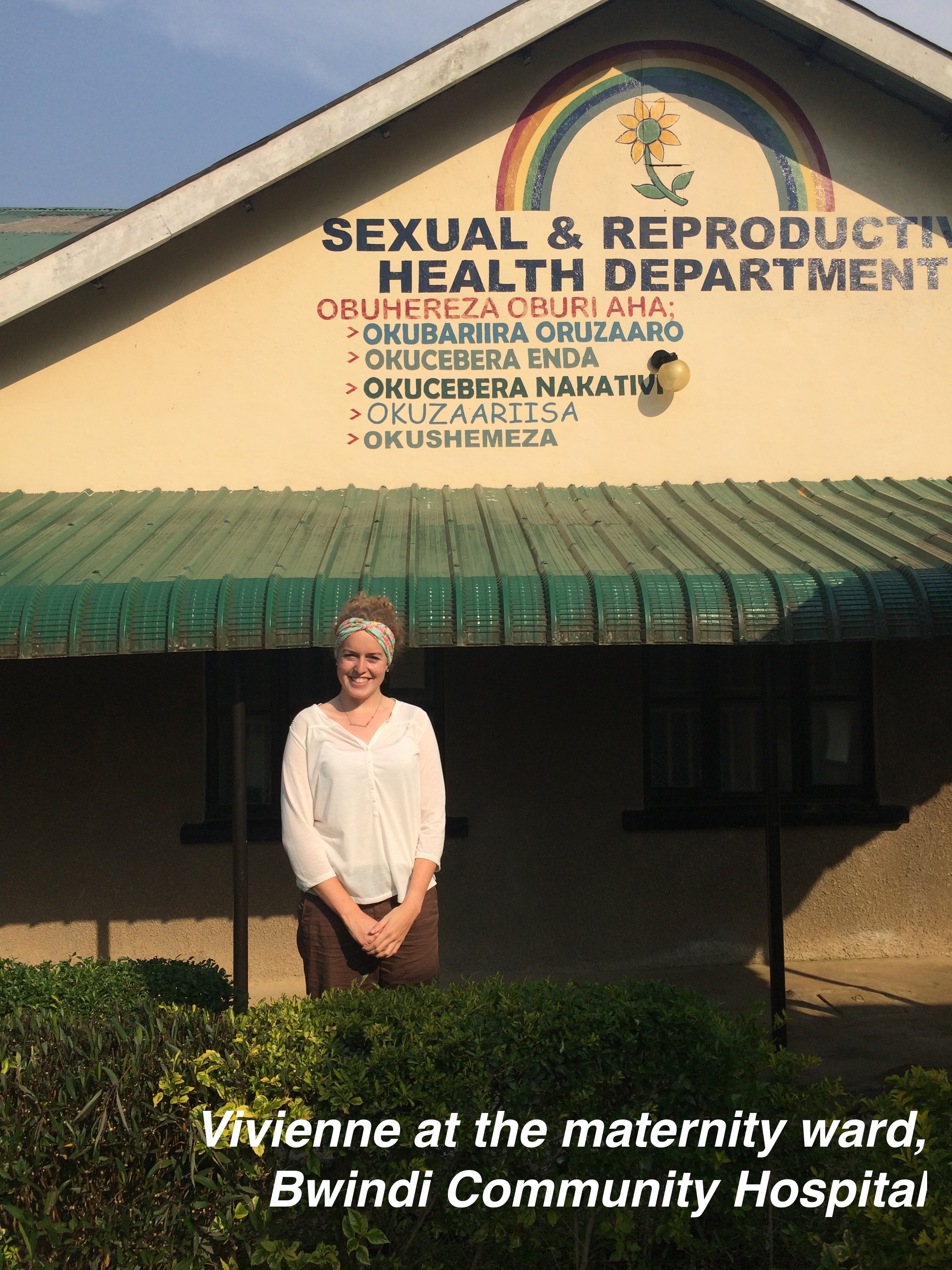Written by Vivienne Steele, MSc Candidate We have wrapped up our seven weeks in Bwindi, Uganda and are now settling back into life in Canada. The final weeks were a flurry of data entry and sharing results with local partners but we managed to finish everything we needed to do.
Our biggest challenge was completing the data entry from the maternity records, but with some help from the wonderful records department staff, we were able to finish entering the complete set of records. The hospital IT staff were pleased with this contribution and we hope it will be helpful to a number of hospital staff in their research.
One evening as we were working late entering records, we got the call we had been awaiting—there was a birth happening on the ward and we were invited to come and assist with the procedure! Cradling this brand new creature moments after it entered the world and tying off the umbilical cord put into perspective everything we have been working on. The experience made it starkly apparent why facility-based deliveries can be so important - the nurse was concerned about postpartum hemorrhaging. Fortunately the sutures held and the mother was able to sit up and meet her baby girl. As the nurse entered the birth information in the record, she asked for our names—we are now listed as having assisted during the birth on the very records we have spent weeks entering.
In our second last week in Buhoma our friend Levi from BDP guided us on the Batwa Experience tour. We headed up a steep mountain path and were welcomed by a traditional dance by several Batwa men and women, who then demonstrated honey-harvesting, hunting practices, and medicinal plant identification. Learning more about the traditional way of life for the Batwa in the forest contrasted greatly with what we saw on our community visits to their new settlements. The preservation of traditional knowledge through the Batwa Experience is an important initiative, but it also reminded us how many traditional food sources were lost when the Batwa were evicted from the forest.
On our final day, we held a preliminary results sharing meeting at the hospital, where 40 BCH staff were in attendance. It was a great chance for us to give a summary of IHACC, our projects, the work we had been able to accomplish while at BCH, as well as next steps. We also gave an overview of the health records evaluation draft. Our presentation was well received, and the staff were eager to review the soft copies of the evaluation that we distributed. Many people offered some great feedback and questions about the direction of our research.
We will miss BCH, Bwindi, and the many connections and friends we have made in Uganda. However, we are looking forward to continued collaboration with our Ugandan partners as we develop our projects over the coming months. We are very grateful to all who have helped us and feel fortunate to have had this experience. This time has reminded us both of the value of fieldwork; it has grounded our research in real-life experience and motivated us to make our research useful and relevant for BCH and the communities we have been working with.